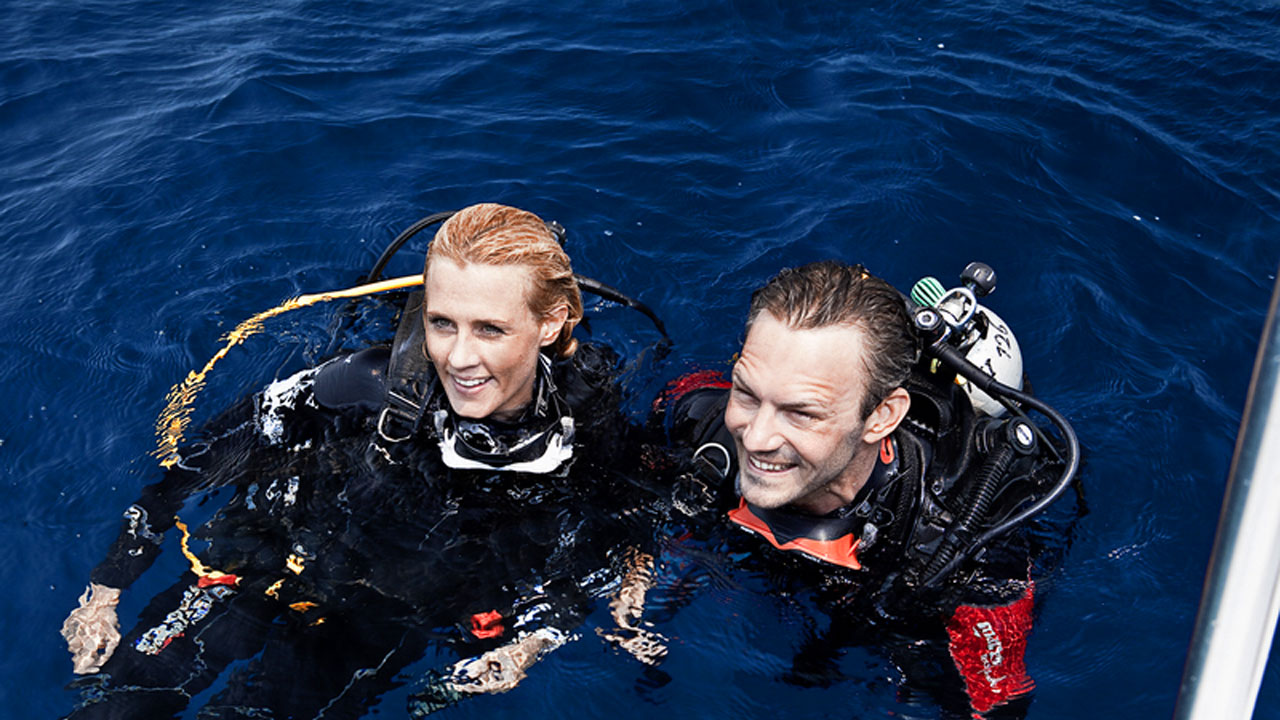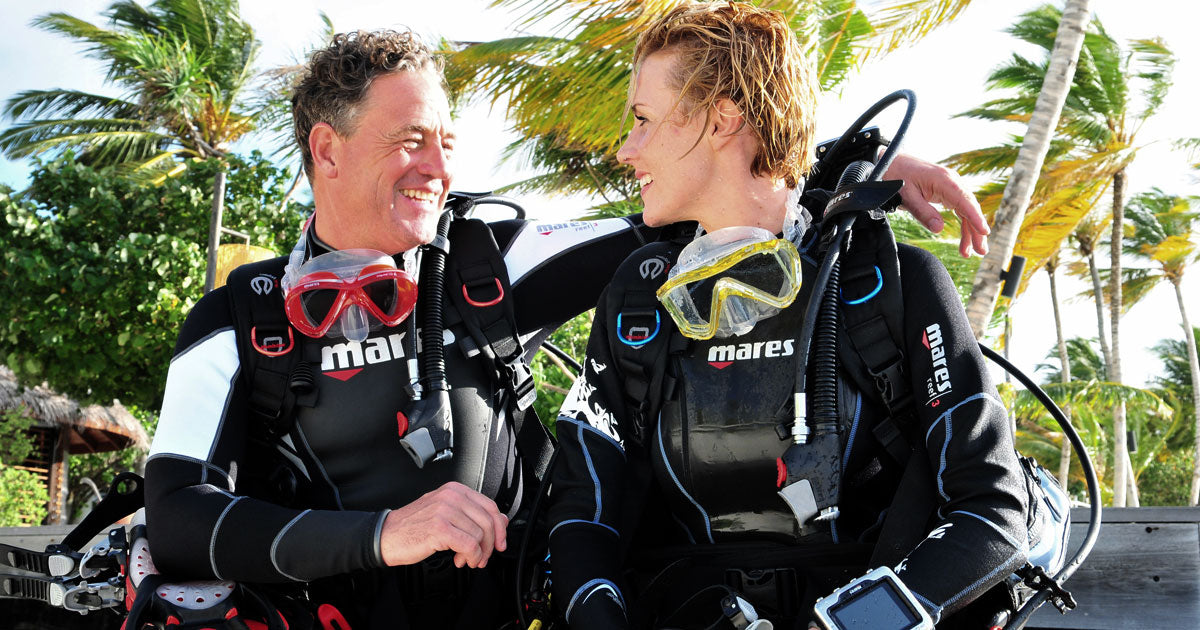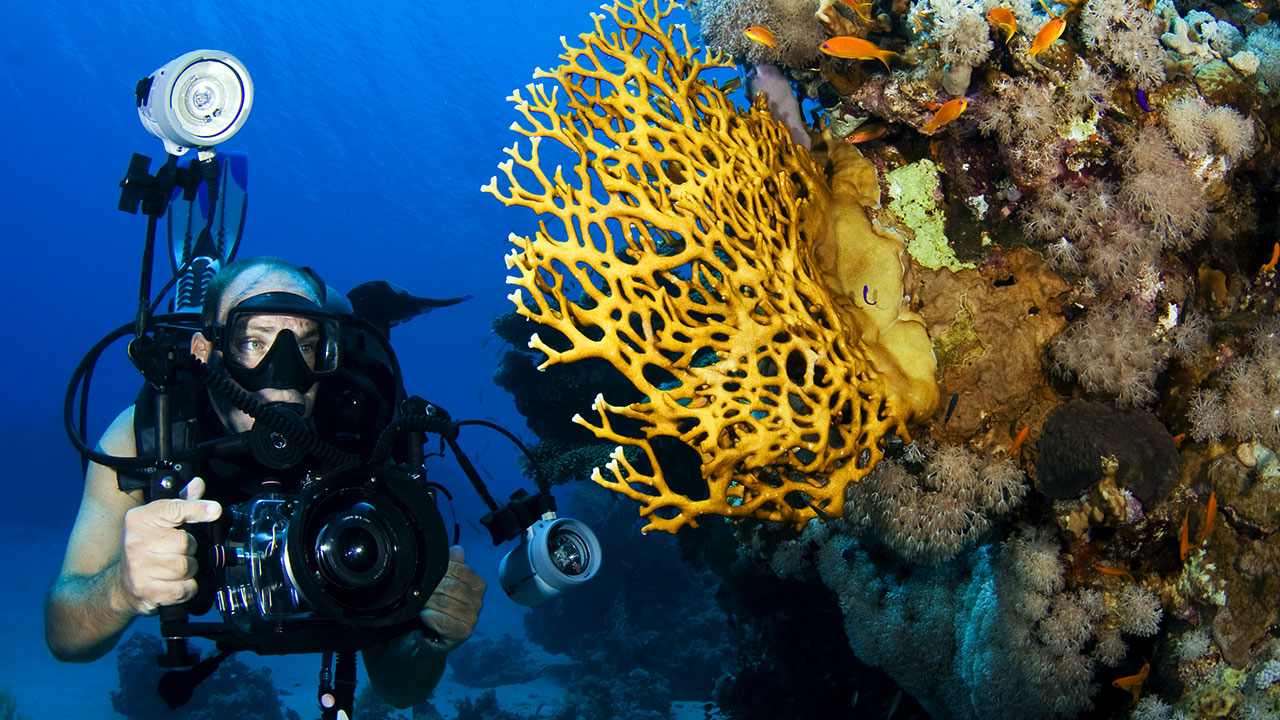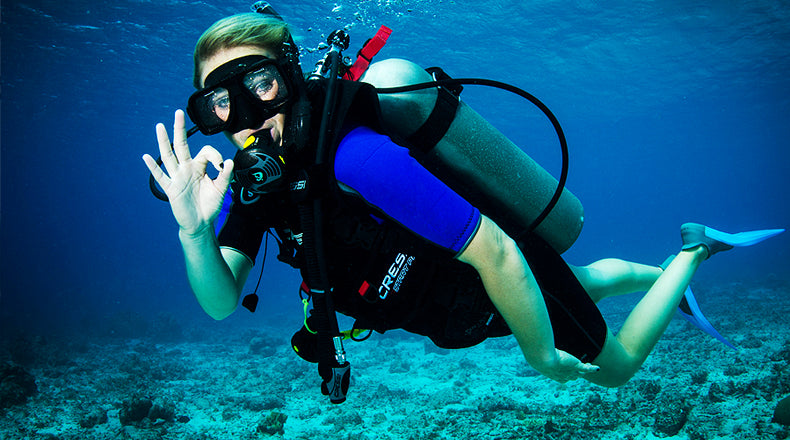Diving Solo: Yes or No?

The buddy system has been at the heart of recreational scuba diving since its very beginning. Nearly all new open water divers are taught to make pre-dive safety checks, practice descents and ascents, as well as perform air-sharing skills in buddy pairs. This, however, is not the only way to dive. Solo diving has become a preferred option for many scuba divers worldwide, with some of the major training agencies now offering solo and self-reliant diver training courses. Still, the topic of solo diving remains one of the most controversial in the scuba community.
What Is Solo Diving?
Solo diving can be defined as a practice of conducting all or part of a dive without a buddy. Although this may seem like simply diving alone, solo diving is much more than that. Properly practiced, solo diving is a disciplined form of scuba rooted in careful planning and self-sufficiency. It requires proper gear, training, and attitude.
A solo diver needs to understand what to do in the event of a problem and be prepared to solve it without the help of a buddy. Therefore, a solo diver should have a honed skill set and carry back-up resources, such as a redundant air supply, spare cutting tools, timing devices or computers, SMBs, lights, and masks.
Some even say that one doesn’t need to dive alone to be diving solo. Advocates of solo diving for example, often regard diving instructors as solo divers because they dive with students who have little or no experience and who do not have enough skills to assist or rescue other divers in an emergency situation.
Why Dive Solo?
Certainly, the buddy system, when it’s functioning properly, has a lot of benefits. An extra pair of eyes and ears can help nip a potential problem in the bud before it’s become something more serious. Working together, buddy teams can overcome most minor problems. For many novice divers, simply knowing someone’s there to help reduces stress and anxiety and makes it easier to stay on task. Not to mention that diving with a buddy offers a special spirit of camaraderie and a thrill of shared discovery.
However, some circumstances may expose potential problems in the buddy system, usually occurring due to a mismatch in diving ability, mental attitudes, objectives, and responsibility sharing between buddies. So, many experienced divers opt to dive solo for the following reasons:
1. Dive Objective. With some diving activities, going solo is the best option. Consider the case of underwater photographers and videographers. Some if not most of them prefer to dive unaccompanied so that they can focus on getting great pictures, not watching another diver. Additionally, a buddy swimming around can scare marine life and destroy visibility. Being in a team with a serious photographer is often no fun either. Good pictures take time and simply waiting around till your buddy gets that perfect shot can get boring.Like photographers, underwater hunters often prefer to dive solo, as buddies can become competitors. For a lobster diver or a spearfisherman, having a buddy means that they’ll give away the location of their special spots and successful techniques.
2. Logistics. Maybe none of your friends or family dive, and you don’t want to be buddied up with a person you barely met, maybe you and your regular buddy have different schedules and it’s difficult to plan a dive together, or maybe scuba is not a popular activity where you live - for whatever reason it may happen that there’s just no one else to dive with. Reportedly, many people drop out of diving for this very reason - they feel they have no one to go with. In this case, training to become a solo diver and having the necessary equipment may open a door to diving activities previously closed.
3. Self-sufficiency. Some divers believe that the buddy system unconsciously fosters interdependency, which can lead to a dangerous scenario where one or even both buddies are lacking the ability or self-confidence to deal with potential issues, and assume they’ll be safe because they’re diving with someone who can take care of them. Training to become a solo diver, on the other hand, helps to develop great skill competence, learn self-rescue techniques, improve underwater navigation and dive-planning abilities, as well as understand and accept the diver’s personal limitations. All of this makes for a self-reliant diver, who can handle whatever problems arise with or without the buddy.
4. Independence. When traveling alone, or without a regular dive buddy, many divers prefer to go solo, rather than diving with a randomly assigned person who may be incompetent, unprepared or unwilling to act as a true buddy. Similarly, highly experienced divers may want to avoid the situation where they are teamed up with a much less skilled buddy and feel obliged to take a supervisory role or might end up doing shorter dives.
5. Focus and Solitude. For some, the thought of diving alone may seem intimidating, but seasoned solo divers claim they find the solitude of the experience relaxing, focusing and an almost zen-like.
Things to Consider Before Diving Solo
Diving solo should not be taken lightly. The additional freedom of this activity comes with responsibility. So, here are a few things to keep in mind when considering solo diving.
1. Some risks can’t be accounted for. Scuba diving at any level carries some risk, and although solo divers learn to identify, control and mitigate potential hazards, there are scenarios where having no one around to help increases that level of risk, for example when a diver becomes ill or sick underwater.
2. You must be sure of your physical capabilities. As with technical and professional diving, your physical fitness comes even more sharply into focus here. You need to consider the kinds of environmental conditions you usually encounter and make sure your physical capabilities match. You need to have enough stamina to deal with any potential problems - for example, a sudden increase in the strength of the current, surface surge and waves - on your own.
3. You must have a high skill competence and an honest view of your abilities. You must be able to perform all the skills you learned in your entry-level course in a calm, deliberate manner and without the need for assistance. You should also be able to do this in an environment typical of the conditions you normally experience. In addition to that, you need to be able to compose a detailed dive plan, calculate your air requirements and probable air usage, as well as prepare for contingencies and have a redundant air supply. Finally, you need to be able to perform an honest self-assessment, as overestimating your abilities or ignoring issues can mean getting yourself into circumstances you can’t handle.
4. You are the only one responsible for your safety. It is amazing how many novice divers, despite there being no legal responsibility, simply rely on the guide/divemaster/more experienced buddy to navigate around the dive site, remind them to check their NDL and gas consumption and bring them back to the boat at the end of the dive. Solo diving means that you need to figure these things out on your own.
Solo Dive Training
Diving alone is strongly discouraged by many diving certification agencies, especially for those who do not have a dive master certificate or specialized training. Several training agencies, however, offer courses in solo or self-reliant diving. If you’re an experienced diver and you meet the individual agency prerequisites, a course like this is definitely worth considering. Even if you have no immediate urge to go solo diving, solo dive training will help you become more skillful, risk-aware and - ironically - a better buddy.
SDI Solo Diver Course
Course prerequisites:
- Minimum age - 21 years old;
- Certified SDI Advanced Diver or equivalent;
- Provide proof of 100 logged dives.
What you can expect to learn:
- How to use the SDI Solo Diving waiver and release;
- The solo diving mentality;
- When not to solo dive;
- Equipment for solo diving;
- Planning and conducting a solo dive;
- Navigation;
- Management of solo diving emergencies and more.
PADI Self-Reliant Diver Course
With PADI, The Self Reliant Diver is a distinctive specialty course, which means that the source materials and curriculum are independently developed by PADI instructors who have the necessary expertise and interest in teaching the course, so it might not be available at all PADI dive center.
Course prerequisites:
- Minimum age - 18 years old;
- Certified PADI Advanced Open Water Diver or equivalent;
- Provide proof of 100 logged dives;
- Divers must complete a dive skills assessment.
What you can expect to learn:
- What it means to be a self-reliant diver;
- Potential risks of diving alone, and how to manage those risks;
- The value of equipment redundancy and what back-up equipment is needed;
- Dive planning and gas management;
- How to use an SMB or a lift bag and more.
SSI Independent Diving Course
Course prerequisites:
- Minimum age - 18 years old;
- Certified SSI Open Water Diver or equivalent.
What you can expect to learn:
- What is self-reliance;
- Advanced planning procedures and risk management;
- The use of redundant and safety equipment for independent diving;
- Proper equipment maintenance;
- Special considerations and rescue techniques required to dive independently.
All in all, solo diving is not a black-and-white topic and the choice to dive with or without a buddy should be a personal one. That being said, solo diving is not something to begin recklessly and without preparation. Equip yourself with the necessary dive skills, knowledge and gear.
Make informed decisions and stay safe, solo diving or not!




